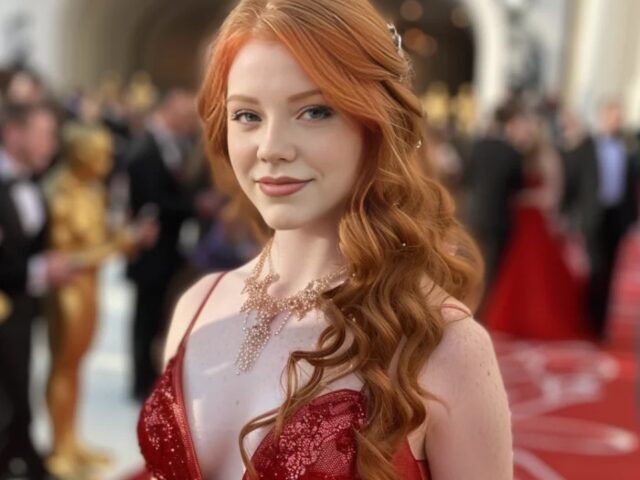Miss AI: The World’s First Beauty Pageant for AI-Generated Models
 Seren Ay
Seren Ay
In a major twist on traditional beauty pageants, the inaugural “Miss AI” pageant is showcasing contestants who exist solely in the digital realm, created using generative AI. Although the women may be purely digital, in the face of beauty pageants selecting transgender winners, Miss AI may be a refreshing return to traditional beauty standards.
NPR reports that the world of beauty pageants is undergoing a significant transformation as the first-ever “Miss AI” pageant takes center stage this month. Unlike traditional pageants, where human contestants are judged based on their looks, personality, and charitable endeavors, Miss AI features models created entirely using AI technology. These digital beauties have no physical presence and exist only on social media platforms, primarily Instagram.
The Miss AI pageant, organized by the UK-based online creator platform FanVue, has attracted 1,500 submissions from AI creators worldwide. A panel of four judges has selected 10 finalists, all of whom embody the traditional beauty queen tropes: young, buxom, and thin. The winner of the contest will receive a cash prize of $5,000, along with public relations and mentorship opportunities.
The Miss AI pageant is generating significant attention from both the media and the public. The combination of cutting-edge AI technology and the allure of beautiful, albeit artificial, women has proven to be an effective way to engage with audiences. Eric Dahan, CEO of the social media marketing company Mighty Joy, believes that this type of content is highly engaging and “super low hanging fruit” for creators to pursue in the early stages of AI technology.
However, some experts and observers have expressed concerns about the lack of diversity among the Miss AI finalists. Sally-Ann Fawcett, a beauty pageant historian and Miss AI judge, hopes to change these stereotypes “from the inside” by focusing on the messaging around the AI beauty queens rather than solely on their appearance. She believes that the contest should showcase a more diverse range of AI models, including those of different genders, sizes, ages, and with unique flaws.
Artist and filmmaker Lynn Hershman Leeson, whose work explores the intersection of technology and feminism, also questioned the creators’ adherence to traditional beauty pageant tropes. She noted that the AI world offers a wide range of possibilities for attractiveness, and the contest could have gone beyond the “stereotype of the stereotype.”
The Miss AI contestants aren’t just being judged on their appearance and messaging; they are also evaluated based on the skill with which their creators employ AI technology to make them look hyperreal and the depth and speed of their audience engagement on social media. Creating a photorealistic human is a complex task, but the pageant’s primary focus is on showcasing AI as a marketing tool, specifically in the realm of AI influencers.
AI influencers like the Miss AI finalists are starting to gain traction within the global influencer market, which is expected to reach $200 billion by 2032. One of the world’s most successful AI influencers, Aitana Lopez, earns her creators several thousand dollars a month through brand partnerships. While this may be a small amount compared to top human influencers, AI influencers have the potential to catch up quickly.
Mohammad Talha Saray, a member of the team from Ankara, Turkey, that created finalist Seren Ay, stated that they developed the AI model as a brand ambassador for their jewelry e-commerce company because human influencers were too expensive and demanding. Saray noted that AI avatars are cheaper, more flexible, and don’t talk back, allowing for limitless creative possibilities. Since Seren Ay’s introduction, Saray’s jewelry business has grown tenfold, with her social media videos garnering millions of views.
Read more at NPR here.
Lucas Nolan is a reporter for Breitbart News covering issues of free speech and online censorship.
Source link


